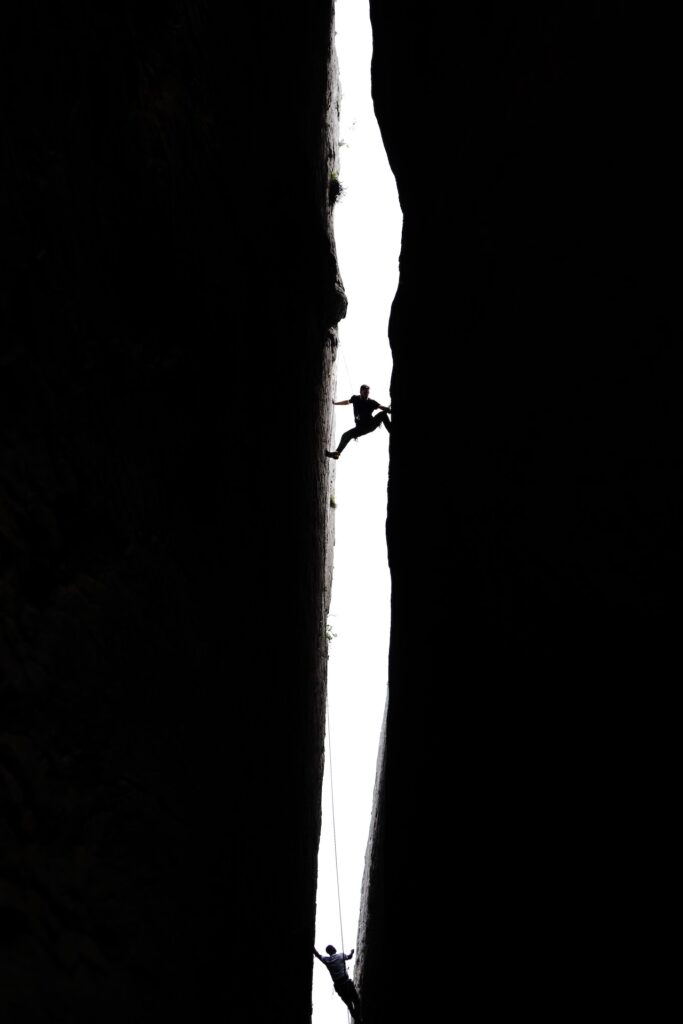The lure of adventure stirs something primal in many of us. The prospect of new experiences, conquering fears, pushing our limits, and getting that rush of adrenaline can be irresistible. Why do some hear the call of adventure louder than others? What drives people to voluntarily face risk and hardship? In this comprehensive guide, we’ll explore the psychology behind the quest for thrills and how to seek adventure responsibly.
The Allure of the Unknown
The draw of the unknown is a common thread among adventure seekers. Facing the unfamiliar requires increased awareness and quick thinking, which activates our fight-or-flight response. This releases adrenaline and endorphins, producing feelings of euphoria. Additionally, engaging our problem-solving skills leads to a satisfying sense of mastery and achievement. Rather than staying in our comfort zones, adventurers embrace the unfamiliar.
Pushing Boundaries
Adventurers often share a desire to push beyond self-imposed limits. Setting challenging goals and succeeding provides a huge mental reward. Adventures allow people to expand their beliefs about themselves. Facing fears head-on ultimately leads to heightened confidence and self-actualization. With each success, adventurers learn to push boundaries further.
Thrill of the Risk
Risk-taking behaviors activate the brain’s dopamine reward system and other pleasure centers. Dopamine provides feelings of motivation and satisfaction when we accomplish something that seemed uncertain. Adventurers enjoy the thrill of willingly facing calculated risks. The higher the stakes, the more dopamine gets released when successful. Over time, greater risks may be required to get the same rush.
Boredom with the Familiar
For some, boredom with everyday life fuels the drive to seek adventure. The mundane can seem confining. Business as usual and predictable routines fail to provide sufficient mental stimulation. Adventurous activities provide an escape from the dull and dreary. Excitement comes from embracing the unexpected rather than sticking with the status quo.
Personality Traits of Adventurers
Certain personality traits are common among adventure seekers, explaining their desire for thrilling pursuits. Understanding these characteristics provides insight into what drives adventurous spirits.
High Openness
Openness to new experiences is a defining trait of those drawn to adventure. People high in openness demonstrate intellectual curiosity, active imaginations, and willingness to consider unconventional ideas. They think outside the box and don’t shy away from the unfamiliar. Adventure represents a novel opportunity for discovery.
Sensation Seeking
Those high in sensation seeking have an optimal level of arousal that is higher than average. They pursue excitement and avoid boredom. Routine activities fail to provide the stimulation and rewards they crave. Adventurers enjoy the sensory jolt of exhilarating experiences. Their brains are essentially wired to need more thrills.
Competitiveness
Many adventurers are drawn to the chance to test their skills and abilities. Proving mastery in extreme circumstances provides a sense of achievement. Adventurous activities often include an element of competition, either against oneself or others. For competitive people, adventure represents the ultimate arena to win.

Ben Franklin Effect: Make Others Like You
The Ben Franklin effect is a psychological concept that suggests doing someone a favor increases their liking for you. Even if they initially disliked you, they will develop more positive feelings after you do something nice for them. This occurs because of cognitive dissonance – people subconsciously justify their actions and resolve inconsistencies in beliefs and behaviors. Here are some ways to utilize the Ben Franklin effect:
- Volunteer to help a colleague with a project. Don’t wait to be asked.
- Offer sincere praise to someone who normally criticizes you.
- Pick up the check for someone’s coffee or meal. Don’t let them pay you back right away.
- Hold the door open for someone who tends to ignore you. Catch them off guard with polite gestures.
- Send a small gift to mend fences with an adversary. Make the first move to reconcile.
When you do unsolicited favors with no strings attached, it challenges others’ preconceived notions of you. Resolving this inconsistency often results in increased affinity. With some persistence, the Ben Franklin effect can gradually transform enemies into friends.
Tips for Seeking Adventure Responsibly
While thrill seeking has appeal, safety should be the top priority. Certain measures allow adrenaline junkies to fulfill their need for adventure while managing risks:
- Research risks and dangers. Learn about possible hazards you may encounter. Come prepared with skills and equipment to minimize threats.
- Know your limits. Don’t overestimate your abilities. Build up gradually to higher risk activities. Recognize when to stop and turn back.
- Use protective gear. Wear helmets, life vests, safety harnesses, and other equipment as warranted. Don’t take unnecessary chances with safety.
- Bring emergency provisions. Carry first aid supplies, water, food, etc. Know how to use navigation tools if getting lost is a concern.
- Don’t go it alone. Do risky activities with a partner or group. Having others provides backup and assistance in case of emergency.
- Prioritize sleep and fitness. Fatigue and poor physical fitness increase accident risk. Maintaining strength and stamina should complement adventures.
- Respect the environment. Follow wilderness ethics and regulations. Be prepared for extreme weather, wildlife encounters, etc.
With thoughtful precautions, the spirit of adventure can be fulfilled. Judicious risk-taking ultimately results in rewarding experiences and exciting memories to last a lifetime.
Why Do People Love True Crime Stories?
True crime shows, podcasts, books and documentaries have exploded in popularity in recent years. What is the fascination in real stories of gruesome violence, murder and human depravity? Experts have proposed several psychological explanations for the pull of true crime:
- Morbid curiosity – A desire to peer into the dark side of humanity while still feeling safe. Allows people to confront fears from a position of comfort.
- Empathy – Imagining being the victim or detective provides strong emotional response. Personal investment in the story outcomes.
- Justice – Satisfaction in seeing moral resolution. The bad guys usually get caught in the end. Gives hope for justice in real world.
- Looming threat – Heightened interest during times of cultural anxiety. True crime lets people confront dangers and prepare mentally.
- Puzzling motives – Fascination in trying to comprehend seemingly inexplicable crimes. True crime offers clues but rarely complete explanations.
- Forbidden content – Attraction to lurid themes outside norms of polite conversation. True crime allows people to indulge morbid curiosity.
While gruesome true stories certainly appeal to some perverse interests, they also reflect society’s fears and hopes for justice. The continuing popularity of true crime speaks to timeless human concerns with safety, empathy and order.
Key Takeaways
- Adventure provides psychological thrills by activating fight-or-flight response and releasing adrenaline and dopamine.
- Adventurers tend to be open, curious, competitive and sensation seeking. They crave novelty and intellectual challenges.
- Start slowly and take safety precautions when adventure seeking. Don’t take unnecessary risks or go beyond your abilities.
- True crime fascinates by providing escape, activating morbid curiosity, allowing people to confront fears safely and satisfying a desire for justice.
Seeking Fulfillment in Extreme Sports
For extreme athletes, adrenaline-pumping adventures like skydiving, wingsuit flying, big wave surfing or downhill mountain biking provide deep personal fulfillment beyond just thrills. What inner drive keeps these individuals motivated to push the limits repeatedly? Consider the profound rewards found through extreme sports:
Testing the Mettle of Human Spirit
Extreme athletes are driven by a desire to prove the boundless potential of human abilities. Pushing past perceived physical and mental limits shows what’s possible with hard work and determination. The fulfillment comes from redefining notions of human capacity.
Celebrating One’s Vital Aliveness
Cheating death ignites an explosive celebration of being alive. The immediacy of extreme sports forces complete presence in each fleeting moment. Without time to worry about quotidian concerns, athletes achieve a zen-like focus and connection to life.
Gaining Emotional Resilience
Staring down mortal danger yet emerging victorious builds boldness and fortifies the spirit. Each success reinforces self-efficacy and emotional resilience. Athletes transfer this strength to overcome adversity in daily life.
Achievement of Mastery
The quest to master supremely difficult endeavors provides intense satisfaction. Success comes from meticulous preparation, responding effectively under pressure and staring down risks. The joy comes from achieving the extraordinary.
Gritty Determination
Extreme sports require steely perseverance and grit to progress through pain, injury, setbacks and fear. Athletes take pride sustaining tenacious effort despite profound discomforts and risks. This dogged determination defines their existence.
For extreme athletes, pursuing the extraordinary taps into the deepest parts of human nature – the need to actualize one’s potential, celebrate life, find purpose and demonstrate courage against long odds. Their extreme adventures represent a path to fulfillment.
Frequently Asked Questions About Adventure Seeking
What personality traits are most common among adventure seekers?
The most common traits include: openness to experience, curiosity, competitiveness, sensation seeking and tolerance for uncertainty. Adventurers tend to be more extroverted and unconventional. They have lower risk aversion.
Is it possible to become more adventurous?
Yes, you can stretch your comfort zone and become more adventurous over time. Start small by trying new foods, taking a weekend trip somewhere unfamiliar or learning an exciting skill. As you get used to novelty, continue taking on greater challenges and calculated risks.
Why do I sometimes feel depressed after an intense adventure?
Coming down from the adrenaline high of an extreme adventure can sometimes lead to a “crash,” leaving you feeling low or depressed temporarily. This post-adventure letdown is caused by reduced dopamine and serotonin levels after the thrill wears off.
What outdoor adventures are good for beginners?
Beginner-friendly adventures include hiking an easy-moderate trail, camping, kayaking on calm lakes or rivers, rock climbing at an indoor gym, ziplining, mountain biking on dirt trails and swimming in open water. Work your way up to more extreme adventures.
Can you recommend safety tips for wilderness adventures?
Bring essential supplies like food, water, first aid kit, headlamp, navigation tools, fire starter and shelter. Wear appropriate gear and clothing. Know your route and abilities. Stay with a partner. Tell someone where you’ll be and when to expect you back.
Conclusion
The call of adventure stirs the human soul, beckoning us toward the unknown, untested and extreme. Seeking thrills and novelty allows us to feel vibrantly alive, push boundaries, gain resilience and actualize hidden potentials. Yet adventures should be pursued responsibly once adequate precautions are taken. Ultimately, confronting challenges in the wilderness or other environments provides unparalleled opportunities for self-discovery, growth and fulfillment that enrich life’s journey. The allure of adventure will continue giving wanderers, risk-takers and adrenaline junkies purpose as they chase the thrill of the uncertain.

